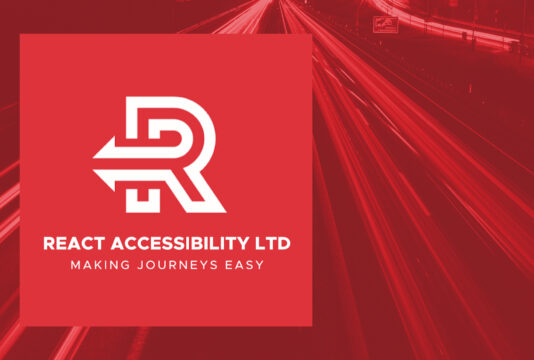
Meet the Papercast CMS Layout Catalogue: A must have resource for sharing visually impactful passenger information
We’re excited to tell you about the Papercast Content Management System (CMS) Layout Catalogue, an…

Bus services are key to communities, connecting people with places – the offices they work in, the schools where they learn, and the shops where they spend their money. Some areas, communities and nations rely on bus services more than others, but the fact remains that buses are critical to our public transport network. In fact, over sixty percent of public transport journeys are on buses in the UK, representing nearly five billion local bus passenger journeys every year.
This is not only the case in the UK, but also around the world. If you think about other modes of public transport, why is bus transport so far behind? After all, train stations have live, accurate passenger information, as do airports. Do we see people checking an app on their mobiles to find out about departure times, or do they check the information boards that provide real-time information? If you throw ride sharing services like Uber into the mix, who excel in giving customers visibility of arrival and travel data, I think we would all agree that the bus sector needs to get with the times!
The short answer is the (lack of) provision of an open data set, which includes accurate information on bus routes and service arrivals. The current approach to open data and the lack of accessible, accurate and timely data is out of step with other sectors.
In the UK, the issue is now being tackled by the Department for Transport (DfT) under the Bus Services Act 2017, and the Government has recently held a consultation on the Bus Open Data Policy.
The DfT believes that providing better and open data will ultimately attract more people to use services and grow the overall bus market. Providing better information will enhance the passenger experience by removing uncertainty when planning trips and waiting at stops.
We couldn’t agree more!
The position in the UK is that London is relatively advanced. Public transport users can easily plan journeys and travel with certainty due to regular live service updates. But this is not a consistent experience across the entire country due to a lack of clear obligations placed on operators and local transport authorities. While we turn our eye to the ambitions of the UK in this article, this situation is common of so many other countries around the world (with some countries still very much on the starting line).
We are fully behind the move towards open data standards and we support the goals of the UK Department of Transport. We believe this is the future and that the rest of the world will follow.
As you would expect, the internet it the go-to place for resources so we won’t bog you down in the detail. But here are some of the highlights from the Bus Services Act 2017: Consultation on Bus Open Data paper:
The Regulations will be implemented in a way that balances the passenger benefits with the need to maintain services, as follows: route and timetable information by end of 2019, basic fare and ticket information by end of 2020, real-time information by end of 2020 and complex fare and ticket information by end of 2022.
DfT has been very clear about its ambitions in the consultation paper and believes it will have a positive impact across the sector. This full economic assessment of the open data improvements supports their strategy, and highlights the following key monetised benefits by ‘main affected groups’:
Everyone we talk to agrees: AVL open data standards will benefit everyone!
As you can see there is great emphasis on data quality. Bus operators and local authorities will be obliged to make real-time information available to the Bus Open Data Portal in a standard format.
The DfT defines real-time information as “any information available about the current status of buses, including latest known locations and predicted arrival times at bus stops… It provides passengers with live status updates of planned and unplanned disruptions or diversions… allowing them to quickly assess if they need to take another route to their destination”.
While there isn’t a statutory requirement to equip buses with Automatic Vehicle Location (AVL) technology in England, around 97% of buses have the equipment as a result of financial incentives. However, this does not necessarily equate to comprehensive real-time information, as a back-office system is needed to process the Global Positioning System data and release it in a format that passengers can understand.
Under the Act, all bus operators will be required to open their bus AVL data to local transport authorities, who will have the responsibility for ensuring the data is provided to the Bus Open Data Portal in the agreed standard via API or live data feed.
There is increasing emphasis on the quality of the data, specifically the predicted bus arrival times. This is where Better ETA from Papercast comes in.
Better ETA meets the requirement of a back-office system that processes the Global Positioning System data and releases it in a format that passengers can understand. Yes, it does this… and so much more. It can improve the accuracy of bus arrival and journey time predictions. Yes, that’s right!
It is an advanced analytics platform that takes existing AVL data and makes real-time adjustments to improve ETA using big data methods. The data can then be integrated with any passenger information system, including the Bus Open Data Portal or Papercast’s solar powered e-paper bus stop displays.
In summary, it helps you to tell passengers EXACTLY when the next bus will arrive and how long the journey will take.
Check out our graphic for Better ETA highlights (click to download):

Get in contact to find out how you can not only MEET THE STANDARD but SET THE STANDARD in providing the most accurate arrival information possible. Whether you need Better ETA to meet regulatory requirements, or you want to significantly improve the information you provide to your bus users, please speak to our team and arrange a demo.

We’re excited to tell you about the Papercast Content Management System (CMS) Layout Catalogue, an…

The REACT Trigger System is now available on Papercast displays We’re excited to share that…